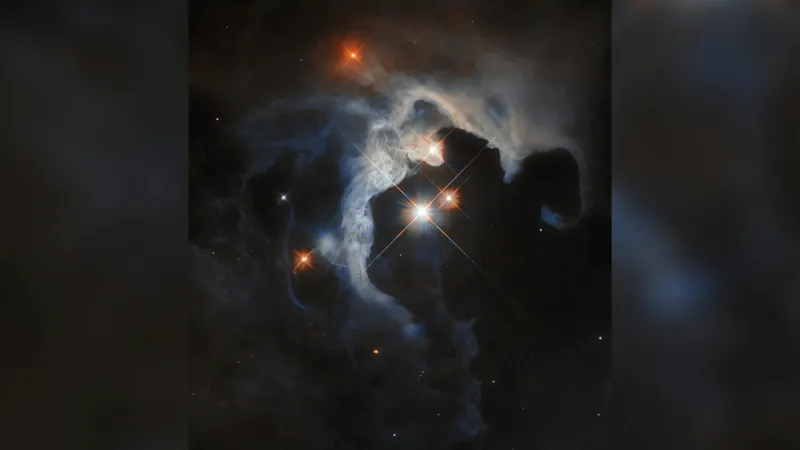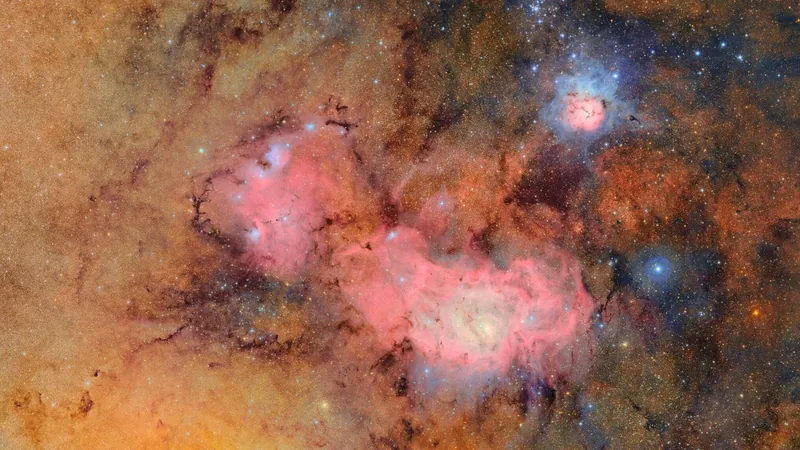
Uncovering the Brain's Secret 'Off Switch' for Binge Drinking
2025-06-18
Author: Wei
Could Your Brain Have an 'Off Switch' for Binge Drinking?
New groundbreaking research may have unlocked a mysterious 'off switch' in the brain that helps to control binge drinking. This intriguing discovery, detailed in a June 10 study published in Nature Neuroscience, reveals a unique cluster of less than 500 neurons that can either suppress or trigger binge-drinking behaviors.
Exciting Findings from Animal Studies
In studies conducted on mice, researchers found that manipulating these neurons in the medial orbitofrontal cortex affected alcohol consumption significantly. Lead author Gilles Martin, an associate professor of neurobiology at UMass Chan Medical School, emphasized the astonishing variety of brain functions, stating, "It doesn’t take many neurons to control behaviors." This study appears to confirm just how powerful a few brain cells can be.
The Brain's Reward Mechanism
For years, scientists have theorized that the medial orbitofrontal cortex is involved in assessing the trade-offs between rewards and their negative consequences. However, recent technological advancements allowed researchers to dive deeper into this brain region and uncover hidden mechanisms at play.
Using optogenetics, a technique that enables researchers to manipulate specific neurons with light, the team identified a tiny subset of neurons that became active during alcohol consumption. When they switched off this neuron cluster, the mice's drinking behavior escalated dramatically, indicating that these neurons function like a built-in brake.
Revolutionizing Alcohol Treatment?
This discovery opens up the potential for developing targeted treatments for alcohol use disorder. If similar neurons exist in humans, it could explain why some individuals struggle more with binge drinking than others. If their 'off switch' is less active, they may lack the necessary aversion signals to curb excessive drinking.
Surprising Insights About Neuron Functionality
One of the most astonishing revelations was that these neurons, surprising located in the prefrontal cortex, also appeared to be specifically responsive to alcohol. Unlike other stimulants, like sugar, activating this neuron cluster did not alter the mice's consumption of saccharine.
Martin speculates that different drugs might stimulate distinct neuronal ensembles, emphasizing the complexity of how substances like alcohol interact with the brain's reward systems.
Looking Ahead: The Future of Alcohol Research
As researchers continue to explore this unique neuronal subset, the implications for treatment strategies could be monumental. Understanding the variances in how different individuals experience alcohol use disorder may shed light on personalized treatment approaches. With further investigation, we could be on the brink of significant breakthroughs in combating binge drinking.





 Brasil (PT)
Brasil (PT)
 Canada (EN)
Canada (EN)
 Chile (ES)
Chile (ES)
 Česko (CS)
Česko (CS)
 대한민국 (KO)
대한민국 (KO)
 España (ES)
España (ES)
 France (FR)
France (FR)
 Hong Kong (EN)
Hong Kong (EN)
 Italia (IT)
Italia (IT)
 日本 (JA)
日本 (JA)
 Magyarország (HU)
Magyarország (HU)
 Norge (NO)
Norge (NO)
 Polska (PL)
Polska (PL)
 Schweiz (DE)
Schweiz (DE)
 Singapore (EN)
Singapore (EN)
 Sverige (SV)
Sverige (SV)
 Suomi (FI)
Suomi (FI)
 Türkiye (TR)
Türkiye (TR)
 الإمارات العربية المتحدة (AR)
الإمارات العربية المتحدة (AR)